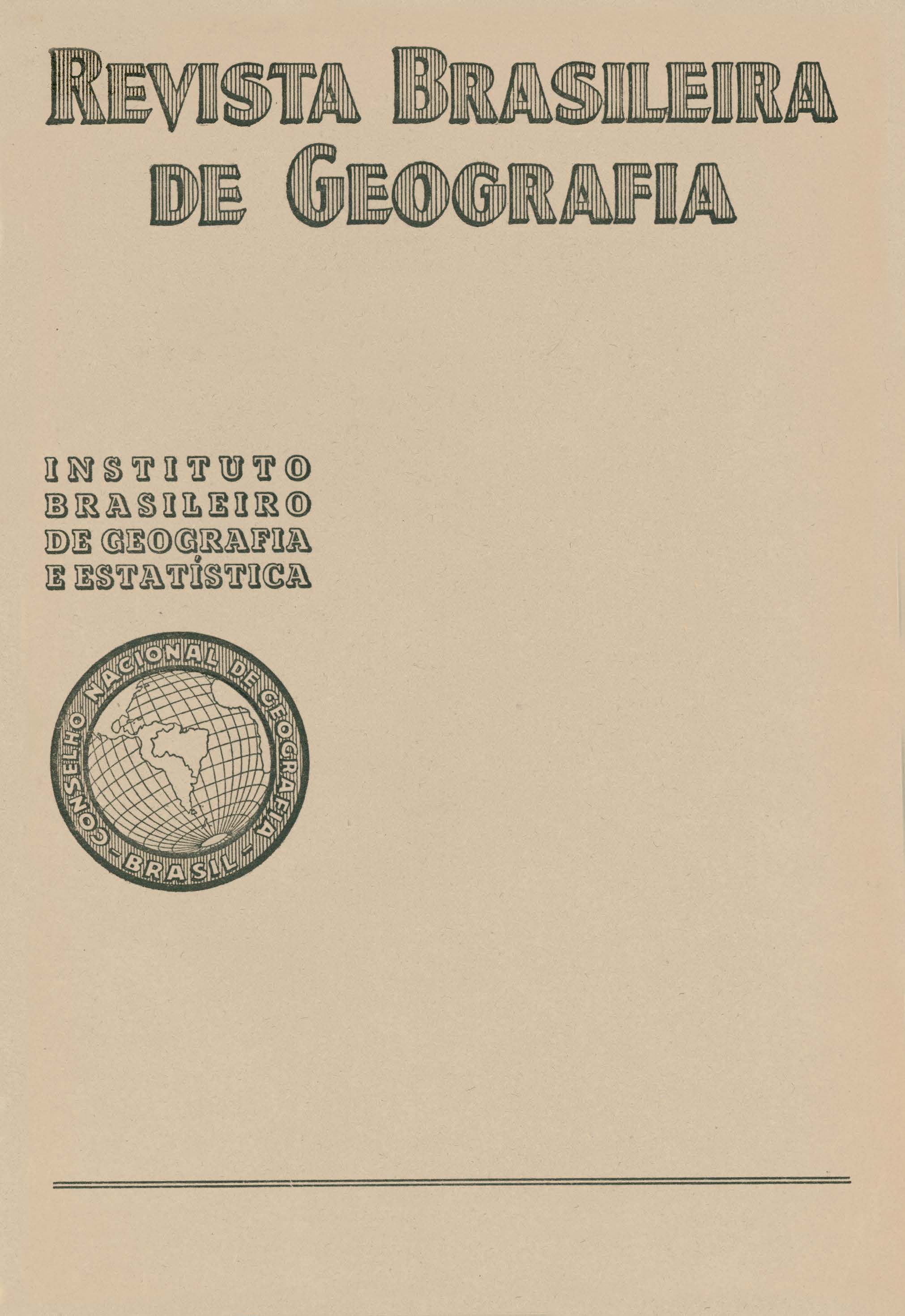Sistemas agrícolas
Palavras-chave:
Geografia da População;, Migração;, Colonização.Resumo
This article deals with the lecture given by Professor T. Lynn Smith, at the National Department of Geography during his last visit to Brazil, by invitation of the National School of Philosophy (U. of Brazil) Professor Smith is Head o f the Departments of Sociology and Rural Sociology at Louisiana State University.
From the beginning of his lecture, he stresses the relationship that exists between the agricultural system of a nation and its standard of living. Standard of living is considered from the points of view of 1) the available natural resources, 2) the work done by the laborer, and 3) the distribution of production. Natural resources are of no value if the knowledge and means of utilizing them have not become a part of the heritage of the people. When the pressure of the population on the natural resources is light, the productivity of the individual worker will depend primarily on the total amount of work that he himself puts out. When, in his struggle against nature, man only has at his disposal the simplest of tools and methods, his production will be at the minimum and his level of living proportionately low. That is what is happening in great areas of Brazil: the betterment of our agricultural system must be carried out especially through the increase of the worker's capacity to produce. The speaker notices in the present agricultural system a threefold assignment of duties. - 1) the execution of the individual work already stated, 2) the exercise of the administrator’s functions, and 3) the execution of the role of the owner. Under the latitudinarian system there is a tendency to reduce the amount of administrative work and to put too much emphasis on labor. The maximum output per capita and, consequently, the greatest standard of living are, however, obtained with the family-farm system where the worker exercises the three aforementioned functions at one time.
The agriculture system employed by a certain group of people constitutes one of the best índices of their position on the social scale. The soft deposits of mud left by flood waters seems to have been the first place chosen for farming. Finding that burning the vegetal cover improved the soil tilth and, in addition, destroyed weeds, man used this system to prepare the soil for planting - a phase of agriculture which has still not been passed by innumerable people. The invention of the hoe and the acquisition of rudimentary ideas of fertilizing raised man to the level of permanent agriculture. Then came animal power which, though later supplanted by tractors, continues to be the best system for certain cases. The methods of transportation of agricultural products has also had various degrees of improvement.
Prof. T. Lynn Smith judges that the farming systems o f the peoples in Southern Europe (with the exception of France) and the colonial areas occupied by them lack certain elements which contributed greatly to the progress of Northern Europe and its respective zones of colonization. The differences between the standards of living of Northern Europe and Southern Europe and between Anglo-Saxon America and Latin America have their origin in agricultural, not racial or climatic, factors. Among the missing agricultural elements, he brings out: 1) the small iron or steel plow 2) the four-wheel cart 3) the horse collar and other articles related to the correct harnessing of work horses. One o f the greatest handicaps in Brazil's progress has been the inheritance an agricultural system which lacked those three elements.
He then concentrates on the influence of the large sugar plantations established in Portuguese America that took the place of the modest forms of the Portuguese worker and acted as a true sieve in determining to what degree European agricultural methods were destined to penetrate into Brazil.
As the agricultural inheritance is well rooted, especially in the rural population, and as Brazil is "one of the most rural nations in the world", the survival of the deficient agricultural system among us is explained. As invention alone is a doubtful method of developing a rich agricultural inheritance, there remains the recourse of borrowing through education on through immigration.
Land-burnings are the object of some concern by the speaker. He made the opportune distinction between the use of fire as an aid in the preparation of soil for the plow and its use as a substitute of the plow.
Acknowledging the difficulty of preventing the forest destruction, burnings and other, condemned practices, through simple legislative acts or theoretical instruction, Professor Lynn Smith is of the belief that the chief method of prevention should be through the development of a middle class of farmers and the promotion of their greatest well being.
While it may be much easier to point out general directions than to offer specific steps, the speaker presents some definite suggestions: 1) Establishment of a land policy; 2) Establishment of a universal educational system; 3) Redistribution of the population; 4) Suitable selection of immigrants; 5) Sending of students to the countries with advanced agriculturefor training on periods family farms.






